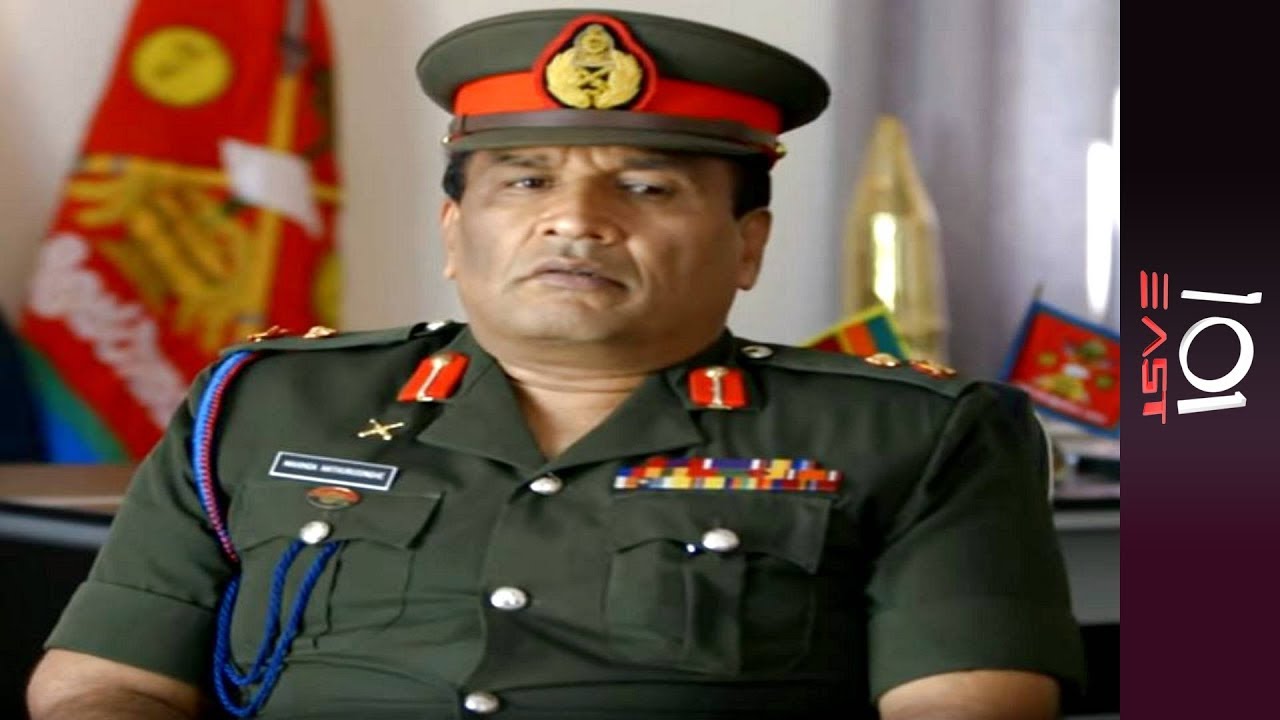🇱🇰 Scars of Sri Lanka | 101 East
The civil war in Sri Lanka ended in 2009 with the victory of President Rajapaksa’s forces over the Liberation Tigers of Tamil Eelam (LTTE), but there are claims that abduction, torture and even rape of suspected former fighters or sympathisers continues today.
In November 2013, Commonwealth leaders, including British Prime Minister David Cameron, converged on Colombo for the bi-annual heads of government meeting. It was a big moment for Sri Lanka, signalling its emergence from post-war turmoil and acceptance as a functioning democratic state on the international stage.
But the government remains under strong international pressure to hold a credible inquiry in to claims that thousands of civilian Tamils were killed in the closing days of the war when government troops are accused of firing artillery into civilian no-fire zones. The government denies this occurred and accused Tamil Tiger fighters of holding civilians as human shields.
Tamil groups also claim thousands of Tamils, including many who surrendered or were arrested at the end of the war, are still unaccounted for. The government insists most of those detained have been released. Travelling to the north of Sri Lanka, we meet civilians whose loved ones are still missing after surrendering alive at the end of the war.
In Jaffna, the LTTE’s stronghold for much of the war, we also meet Ananthi Sasitharan. Her husband, Elilan, was an LTTE political wing leader who surrendered for questioning during the post-war amnesty and has not been seen again. Ananthi leads a group of “war widows” who are demanding to know what happened to their men, all of who disappeared at the hands of the military. We follow her during the Commonwealth Heads of Government Meeting (CHOGM) as she tries to get progress on the missing.
Since the end of hostilities four years ago, the government has been keen to prevent a future Tamil insurgency, and stands accused of continuing to question and detain those suspected of harbouring LTTE sympathies. Those who do emerge from the detention centres speak of the routine use of torture and sexual violence against men or women.
In a report earlier this year, Human Rights Watch documented 75 cases of alleged rape and sexual abuse that occurred from 2006-2012 in both official and secret detention centers throughout Sri Lanka. Many of these abuses occurred after the hostilities ended in 2009 and include victims who had returned to their homeland to visit family or rebuild their lives in the new and peaceful post-war country.
In the north, we speak with a Tamil girl who claims she was repeatedly sexually molested by soldiers and police during questioning. We are given first-hand testimony by a woman who says she became pregnant after being raped by soldiers this year and hear that there are many similar cases.
Whilst Tamils make up the largest number of human rights abuse complainants in Sri Lanka, the government is now accused of cracking down on dissent in the majority Sinhalese population too. We talk with the brother of a high-profile newspaper editor shot dead in 2009 and hear how threats and abductions have driven 23 journalists from the country in recent years.
Journalists say that the freedom of the press has suffered badly with intimidation, abduction and murder of journalists who are critical of the government. According to Amnesty International, at least 14 Sri Lankan media workers have been killed since the beginning of 2006. While those who speak to journalists about their grievances with the government or military can be subject to intimidation afterwards.
One senior military official in the north admits the army is keeping a close eye on Tamils with foreign contacts but insists the claims are fabrications by Tamils trying to live in foreign nations. President Mahinda Rajapaksa told CHOGM that Sri Lanka is investigating claims of war crimes and has a legal system to investigate any claims of human rights abuses. Activists tell us they have been unable to successfully prosecute any cases of alleged torture through that system.
More from 101 East on:
YouTube – http://aje.io/101eastYouTube
Facebook – http://facebook.com/101east
Twitter – http://twitter.com/aj101east
Instagram – http://instagram.com/aj101east
Website – http://aljazeera.com/101east




![Private: [ID: fBgycpxLWOA] Youtube Automatic](https://nezha.pro/wp-content/uploads/2023/09/private-id-fbgycpxlwoa-youtube-a-236x133.jpg)
![Private: [ID: 5pjnizqXy-g] Youtube Automatic](https://nezha.pro/wp-content/uploads/2023/08/private-id-5pjnizqxy-g-youtube-a-236x133.jpg)
![私密內容: [ID: EKY1OChHTa0] Youtube Automatic](https://nezha.pro/wp-content/uploads/2023/08/id-eky1ochhta0-youtube-automati-236x133.jpg)
![私密內容: [ID: 4UFe4tRMZ0Y] Youtube Automatic](https://nezha.pro/wp-content/uploads/2023/08/id-4ufe4trmz0y-youtube-automati-236x133.jpg)
![私密內容: [ID: pkl8HVDagHo] Youtube Automatic](https://nezha.pro/wp-content/uploads/2023/08/id-pkl8hvdagho-youtube-automati-236x133.jpg)
![私密內容: [ID: 5daehHaqpeo] Youtube Automatic](https://nezha.pro/wp-content/uploads/2023/07/id-5daehhaqpeo-youtube-automati-236x133.jpg)
![私密內容: [ID: XxMUOi61Irs] Youtube Automatic](https://nezha.pro/wp-content/uploads/2023/07/id-xxmuoi61irs-youtube-automati-236x133.jpg)
![Private: [ID: uY5SX8c8kWI] Youtube Automatic](https://nezha.pro/wp-content/uploads/2023/10/private-id-uy5sx8c8kwi-youtube-a-236x133.jpg)
![私密內容: [ID: tobguo86Ju4] Youtube Automatic](https://nezha.pro/wp-content/uploads/2023/07/id-tobguo86ju4-youtube-automati-236x133.jpg)
![私密內容: [ID: 00P3TEP9Tx0] Youtube Automatic](https://nezha.pro/wp-content/uploads/2023/06/id-00p3tep9tx0-youtube-automati-236x133.jpg)